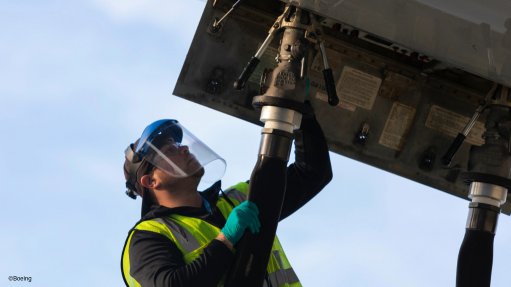Competition authorities should balance public interest, competition considerations in merger decisions
As the Competition Commission obtains and mulls the inputs in response to its recently published draft guidelines on public interest decisions in merger considerations, stakeholders have warned that public interest issues should not predominate at the expense of competition concerns.
The draft guidelines, published in January, for the assessment of public interest provisions in merger regulation under the Competition Act, No 89 of 1998, was open for comment until February 23.
The guidelines attempted to address the various issues around potential mergers and represented the commission's attempt to balance the two issues of competition and public interest when determining the outcome of a merger.
A panel of speakers at a Bowman Gilfillan African Competition Law conference, in Sandton, on Friday, agreed that a balance between public interest and competition needed to be found when the Competition Commission decided the fate of potential mergers in South Africa.
Bowman Gilfillan partner Maryanne Angumuthoo said there was a “clear” reason for the public interest provision; however, a review should be conducted into the various “onerous” conditions, favouring public interest, that were placed on merging parties to determine the consequences and enable the setting of precedent to move forward.
Citing certain cases, such as the Walmart/Massmart deal, she cautioned the commission not to vigorously pursue public interest issues to the extent that it damaged what it was tasked to protect – competition.
The Competition Act was intended to reform, boost the historically disadvantaged and support black economic empowerment; however, there was a need to determine the appropriate role of the public interest provision, particularly as Section 12 A (1)(b) of the Act implied that the Competition Commission must consider the public interest effects of a merger irrespective of conclusions drawn when applying the competition test.
Angumuthoo explained that the Walmart/Massmart deal had no competitive issues, but did have significant public interest issues in the form of procurement concerns and potential job losses, for which conditions in the interest of mitigation were applied. These conditions included a two-year job cut freeze, the reinstatement of 500 employees dismissed prior to the deal and the injection of R200-million into a programme to develop small businesses.
Without a review, she said, there was no certainty that the conditions that dealt with the public interest aspect attached to this transaction, and in other cases, had the intended consequences.
Concerns were raised that the provision could lead to conflict of interest as potential mergers that could stimulate competition and the economy though improved efficiencies, but that did not lend themselves to the public interest, could be rejected.
While she believed that the call for comment on the commission’s approach was a “good start”, it was not clear what role the public interest would play and whether the prioritisation of the immediate public interest benefits of a merger undermined competitiveness and investment.
Even with guidelines, it was likely that mergers would still need to be assessed on a case-by-case basis.
Competition Tribunal chairperson Norman Manoim agreed that the two issues should be married effectively to meet public interest and business requirements.
However, he argued that the public interest provision had not been detrimental to competition and could actually assist corporations to become more competitive, with many companies benefiting from the public interest stipulations.
Further, large public interest issues had actually accelerated the commission’s decision process in certain cases, with merging parties then able to conclude deals more speedily.
Manoim pointed out that no mergers had, to date, been blocked on a public interest basis in South Africa
Comments
Press Office
Announcements
What's On
Subscribe to improve your user experience...
Option 1 (equivalent of R125 a month):
Receive a weekly copy of Creamer Media's Engineering News & Mining Weekly magazine
(print copy for those in South Africa and e-magazine for those outside of South Africa)
Receive daily email newsletters
Access to full search results
Access archive of magazine back copies
Access to Projects in Progress
Access to ONE Research Report of your choice in PDF format
Option 2 (equivalent of R375 a month):
All benefits from Option 1
PLUS
Access to Creamer Media's Research Channel Africa for ALL Research Reports, in PDF format, on various industrial and mining sectors
including Electricity; Water; Energy Transition; Hydrogen; Roads, Rail and Ports; Coal; Gold; Platinum; Battery Metals; etc.
Already a subscriber?
Forgotten your password?
Receive weekly copy of Creamer Media's Engineering News & Mining Weekly magazine (print copy for those in South Africa and e-magazine for those outside of South Africa)
➕
Recieve daily email newsletters
➕
Access to full search results
➕
Access archive of magazine back copies
➕
Access to Projects in Progress
➕
Access to ONE Research Report of your choice in PDF format
RESEARCH CHANNEL AFRICA
R4500 (equivalent of R375 a month)
SUBSCRIBEAll benefits from Option 1
➕
Access to Creamer Media's Research Channel Africa for ALL Research Reports on various industrial and mining sectors, in PDF format, including on:
Electricity
➕
Water
➕
Energy Transition
➕
Hydrogen
➕
Roads, Rail and Ports
➕
Coal
➕
Gold
➕
Platinum
➕
Battery Metals
➕
etc.
Receive all benefits from Option 1 or Option 2 delivered to numerous people at your company
➕
Multiple User names and Passwords for simultaneous log-ins
➕
Intranet integration access to all in your organisation





















